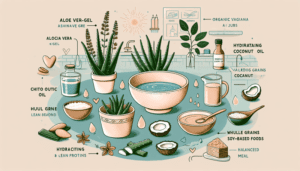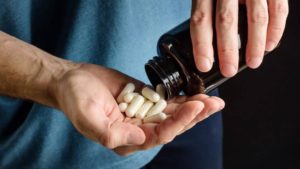Testosterone Boosters Pros and Cons: An In-Depth Guide
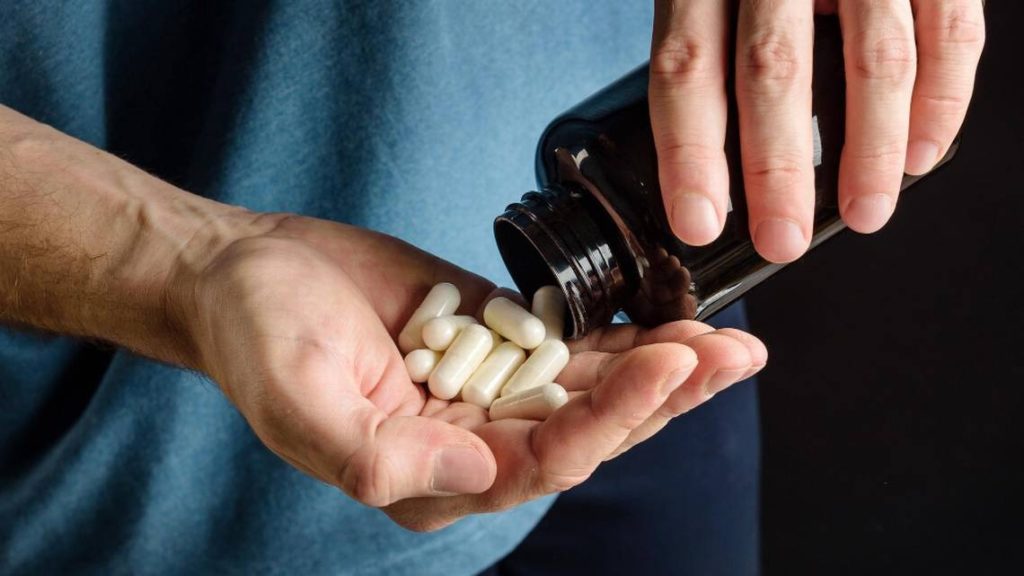
Deciding whether men take testosterone boosters is a significant choice. As I’ve navigated through countless studies and personal experiences, I’ve seen the varied impacts these supplements can have. They promise enhanced physical and mental well-being, but it’s crucial to weigh these benefits against potential risks. My journey has shown me that understanding the balance between the pros and cons is essential for making an informed decision.
Table of Contents
Many men seek to regain their vitality and improve their quality of life through these supplements. The allure of increased energy, improved muscle mass, and a boost in libido is strong. However, it’s vital to approach testosterone boosters with a critical eye, examining both the scientific evidence and anecdotal reports. My aim is to provide a comprehensive guide that sheds light on all aspects of testosterone boosters, helping you make the best choice for your health.
Understanding the Essentials of Testosterone
Testosterone plays a pivotal role in our bodies, influencing everything from our mood to muscle development. Unfortunately, mood swings can be a distressing symptom of low testosterone levels, affecting our daily lives profoundly. My research delves into how maintaining optimal testosterone levels can be key to stabilizing mood and overall well-being. It’s a hormone that deserves our attention for its wide-reaching effects on our health.
The Role of Testosterone in the Body
The significance of testosterone extends beyond mere physical attributes; it’s deeply intertwined with our mental health, causing mood swings when levels fluctuate. This hormone is a cornerstone of our well-being, impacting everything from our physical strength to our emotional state. My exploration into testosterone’s role has revealed its vital importance in maintaining balance within our bodies, highlighting the necessity of keeping its levels in check.
Distinguishing Between Testosterone Boosters and Testosterone Replacement Therapy
In my quest to understand testosterone treatments, I’ve learned the crucial difference between testosterone boosters and testosterone replacement therapy (TRT). While boosters aim to naturally enhance the body’s testosterone production, TRT is a medical treatment prescribed for low testosterone levels. This distinction is vital for anyone considering their options, as the choice between a natural boost and medical intervention has significant implications for health and well-being.
Natural Testosterone Boosters vs Synthetic Options
During my research, I’ve been particularly drawn to natural testosterone boosters. These supplements, derived from herbs and minerals, offer a gentler approach to enhancing testosterone levels compared to synthetic options. My commitment to understanding these natural alternatives stems from a desire to promote health in the most organic way possible. The appeal of natural testosterone boosters lies in their potential to support the body’s hormone production without the harsh effects of synthetic treatments.
The Benefits of Testosterone Boosters
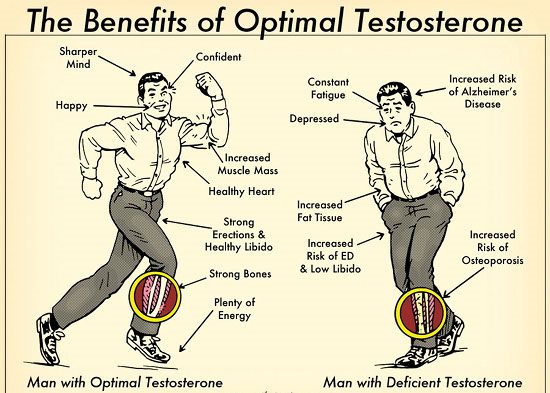
The allure of testosterone boosters is undeniable, offering a beacon of hope for those looking to reclaim their vigor and vitality. The promises of enhanced muscle mass, improved libido, and overall better health are compelling. My mission is to uncover the true extent of these benefits, ensuring that the choice to use testosterone boosters is grounded in reality and not just wishful thinking.
Increased Muscle Mass and Strength
As I’ve delved into the world of testosterone hormone treatments, I’ve been fascinated by how testosterone plays a crucial role in muscle growth and strength. The frustration of muscle weakness is real as testosterone levels decline, leading to decreased muscle mass. However, testosterone supplementation can be a game-changer, reducing fat mass and promoting muscle development. My investigation into these treatments has revealed their potential to dramatically improve physical strength and body composition.
Enhanced Sexual Function and Libido
The impact of the testosterone hormone on sexual health is profound. My exploration into this area has confirmed that a well-balanced level of testosterone is essential for maintaining sexual desire and function. The promise of testosterone boosters to revive libido and enhance sexual performance is not just anecdotal; it’s supported by scientific evidence. This revelation has been a cornerstone of my research, highlighting the significant benefits these supplements can offer in restoring sexual vitality.
Stronger Bone Density
In my journey to understand the effects of the testosterone hormone on the body, I’ve been particularly struck by its influence on bone density and bone mineral density. The risk of fragile bones increases as we age, but testosterone treatments can counteract this, offering a stronger skeletal framework. This aspect of testosterone’s role in health has opened my eyes to its importance beyond muscle and sexual health, showing its critical function in maintaining our overall physical integrity.
Improved Mood and Cognitive Functions
Research shows that the effects of testosterone replacement therapy on the nervous system can lead to enhanced mood and cognitive functions. This discovery has been a beacon of hope in my research, illuminating the profound impact that balanced testosterone levels can have on our mental state. The promise of improved focus, memory, and emotional stability through testosterone treatments is a testament to the hormone’s powerful influence on our brain’s health.
Protection Against Cardiovascular Disease
In my quest to uncover the full spectrum of testosterone hormone benefits, I’ve been intrigued by its potential to safeguard against heart disease. The decline in testosterone levels is linked to an increased risk of heart failure, but testosterone treatments can foster healthier blood cell production. This protective effect against cardiovascular complications has been a critical focus of my research, showcasing the hormone’s role in promoting a healthier heart.
Improved Insulin Sensitivity
Another fascinating aspect of my research has been the link between testosterone supplementation and body composition, particularly its effect on improving insulin sensitivity. This connection suggests a promising approach to managing diabetes and enhancing metabolic health. The potential for testosterone boosters to positively influence body composition and insulin response has been a compelling part of my exploration, highlighting their role in preventing metabolic disorders.
Potential Side Effects of Testosterone Boosters
While the benefits of testosterone supplements are enticing, it’s my duty to also present the potential downsides. Mood disorders, fluctuations in PSA levels, increased cancer risks, breast enlargement, and the necessity of a balanced diet are all considerations that cannot be ignored. My commitment to a comprehensive analysis includes shedding light on these risks, ensuring a well-rounded understanding of testosterone supplementation.
Risk of Prostate Cancer
The link between prostate cancer and increased testosterone levels has been a critical area of my investigation. The effects of testosterone replacement therapy on prostate health, including an increased risk of cancer, demand careful consideration. This potential side effect underscores the importance of monitoring and managing testosterone treatments with precision, highlighting the delicate balance needed to harness the benefits of testosterone while minimizing its risks.
Increased Risk of Blood Clots
When we talk about boosting testosterone, it’s important to mention some of the risks involved. One significant concern is the increased risk of blood clots. This can be particularly concerning for individuals already at risk for cardiovascular issues. Blood clots can travel to vital organs, leading to serious health complications. So, while the goal might be to enhance physical and mental well-being, it’s crucial to weigh this potential risk carefully.
Possible Acne and Hair Loss
Another aspect of testosterone boosters that often gets overlooked is their potential to cause acne and hair loss. For some people, increasing testosterone levels can lead to an imbalance that results in oily skin and breakouts. Similarly, while some are looking to testosterone therapy to enhance their masculinity, an ironic twist can be the acceleration of hair loss. It’s a reminder that the effects of testosterone are wide-ranging and can sometimes be contrary to what we might expect.
Negative Impact on Cholesterol Levels
Now, let’s talk about the heart. Many people don’t realize that testosterone treatments can have a negative impact on cholesterol levels. This can be a bit alarming, especially since heart disease remains a leading cause of death. If your cholesterol levels are adversely affected, it could increase your risk of heart disease. This is why it’s critical to monitor your health closely if you’re undergoing testosterone therapy, to ensure your heart stays as strong as your muscles.
Potential for Aggressive Behavior
It’s also worth discussing how increasing testosterone levels might affect behavior. Testosterone plays a role in aggression, so undergoing treatment could potentially lead to more aggressive behavior in some individuals. This doesn’t mean everyone will experience this side effect, but it’s something to be mindful of. If you or those around you notice significant changes in your behavior, it might be time to reassess your testosterone treatments.
Suppression of Natural Testosterone Production
Lastly, a crucial point that often goes unnoticed is the potential suppression of natural testosterone production. When the body receives testosterone from external sources, it can sometimes decide it doesn’t need to produce as much on its own. This can lead to a dependency on supplements or therapies to maintain testosterone levels. It’s a significant consideration for anyone thinking about starting on testosterone boosters.
Key Ingredients in Natural Testosterone Boosters
When we talk about natural testosterone boosters, it’s important to highlight some key ingredients that make them effective. Ingredients like D-Aspartic Acid, Fenugreek, Boron, Vitamin D, and Ginseng are all stars in the world of natural supplements. Each of these components plays a crucial role in supporting the body’s ability to produce testosterone naturally. They offer a safer alternative to synthetic options, aligning with a more holistic approach to health and wellness.
D-Aspartic Acid (DAA)
D-Aspartic Acid (DAA) is fascinating because it communicates directly with the brain, specifically the pituitary gland, to release the luteinizing hormone. This hormone is vital because it signals the testes to produce more testosterone, which can help maintain normal testosterone levels. It’s a key player in the lineup of natural testosterone boosters, offering a direct route to increasing the body’s own production of this crucial hormone.
Fenugreek
Fenugreek is another powerhouse ingredient in the realm of natural testosterone boosters. Not only has it been linked to improvements in muscle strength, but it can also play a role in managing body weight. This is particularly beneficial for those looking to enhance their physical performance and physique. Fenugreek offers a natural way to support testosterone levels while also contributing to overall health and fitness goals.
Boron
Boron is a trace mineral that, despite its small required amount, plays a significant role in the body’s ability to metabolize key vitamins and minerals. Its inclusion in testosterone boosters is due to its potential to positively influence the body’s natural ability to produce and utilize testosterone. By supporting hormonal balance, Boron becomes an invaluable component of natural testosterone supplementation.
Vitamin D
Vitamin D, often dubbed the “sunshine vitamin,” is crucial for maintaining bone density and muscle strength. Its role goes beyond just keeping our bones healthy; it also supports testosterone levels. Many people don’t get enough Vitamin D, especially those in colder climates with less sun exposure. Supplementing with Vitamin D can thus support not only bone health but also muscle strength and hormonal balance.
Ginseng

Ginseng stands out for its unique ability to potentially increase testosterone levels in men and enhance the sensitivity of testosterone receptors. This means not only could there be more testosterone, but the body might use it more effectively. It’s a double win for those looking to naturally boost their testosterone levels and improve their overall vitality and energy.
Testosterone Boosters Vs. Testosterone Replacement Therapy
When comparing testosterone boosters with testosterone replacement therapy, it’s essential to understand the differences and implications for men’s health. Boosters are typically seen as a more natural approach, focusing on supporting the body’s own production of testosterone. In contrast, replacement therapy involves directly supplementing with testosterone, which can have immediate effects on energy levels, muscle mass, and sexual function. However, both approaches come with potential side effects, from heart and cardiovascular disease risks to impacts on sperm production and bone growth. Understanding these treatment options, including their impact on hormonal balance, body mass, and even risks like breast cancer, is crucial for making informed decisions. Whether it’s through natural boosters or therapy, addressing men with low testosterone levels requires a comprehensive approach that considers all potential health implications.
The Pros and Cons
Considering the pros and cons of testosterone boosters and replacement therapy is vital for anyone looking to address low testosterone levels. The benefits can be significant, including improved energy, muscle mass, and sexual function. However, it’s essential to weigh these against the potential side effects and health risks.
Pros
The advantages of boosting testosterone can be life-changing. Many men experience a remarkable improvement in energy levels, increased muscle mass, and a more robust sexual desire. These changes can lead to a better quality of life, enhanced self-esteem, and a more positive outlook on life. Especially for those struggling with symptoms of low testosterone, these benefits can offer a new lease on life.
Cons
However, it’s crucial to consider the cons. Potential side effects like cardiovascular disease, negative impacts on cholesterol levels, and the risk of prostate and breast cancer cannot be overlooked. Additionally, there’s the possibility of natural testosterone production suppression, which might require ongoing treatment. These risks highlight the importance of proceeding with caution and under medical supervision when considering testosterone boosters or replacement therapy.
The Physical and Mental Impact of Low Testosterone
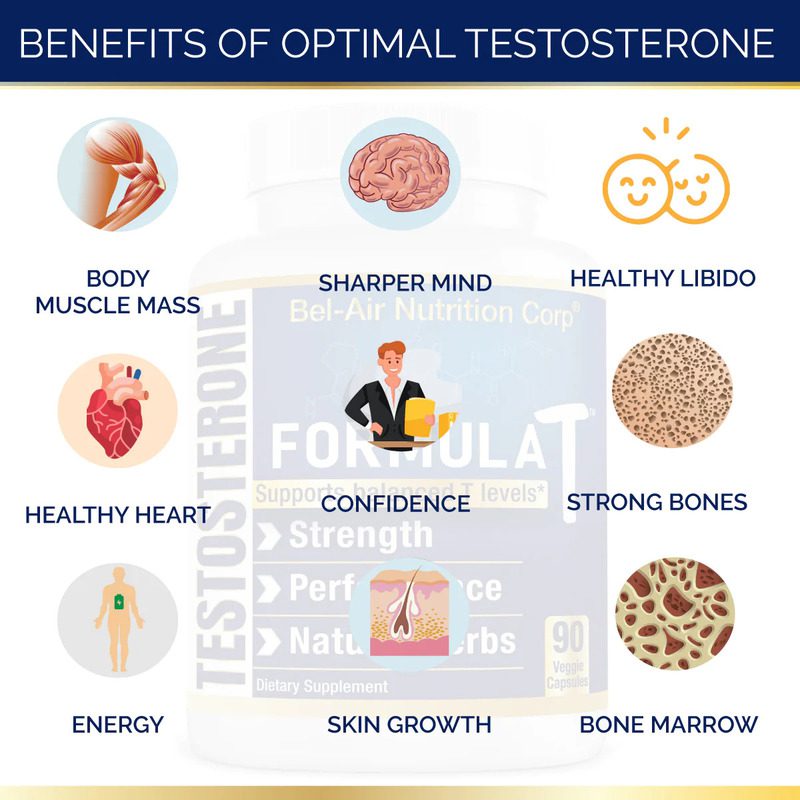
Low testosterone can hit you like a truck. Suddenly, muscle mass and strength start to decrease, and it feels like my energy is draining away. Testosterone plays a crucial role in the production of blood cells, affecting not just physical but also mental health. It’s like trying to run a car without enough fuel. The impact is profound, with fatigue and a struggle to focus becoming part of daily life. It’s more than just a physical slowdown; it’s a mental fog that doesn’t seem to lift.
Recognizing the Signs and Symptoms
Spotting the signs of low testosterone early can be a game-changer. It’s not just about a decrease in libido or challenges in building muscle mass. The symptoms sneak up, including a loss of energy, difficulty in concentrating, and sudden mood swings. These symptoms can upend daily life, turning routine tasks into challenges. It’s like the body is signaling that something is off balance, pushing for attention to restore its equilibrium.
Addressing Low Testosterone through Lifestyle Changes
When faced with low testosterone, lifestyle changes can be a powerful tool. It starts with acknowledging the role of the pituitary gland in hormone regulation and how health issues can affect it. Enhancing cognitive function and managing body weight through diet and exercise can kickstart the body’s natural hormone production. It’s not just about physical health; it’s about nurturing physical and mental well-being. Embracing a healthier lifestyle can mitigate sudden mood swings and boost overall energy levels.
Expert Insights on Testosterone Treatment
Exploring testosterone treatments can feel like navigating a complex maze. The testosterone hormone plays a pivotal role in our bodies, binding to testosterone receptors to influence various physical functions. However, the journey to find the right treatment is filled with considerations about the potential benefits and risks. It’s about understanding the body’s needs and how different treatments can support or hinder our well-being.
How To Receive Proper Testosterone Treatment
Securing effective testosterone therapy demands a strategic approach. It begins with a thorough evaluation by medical professionals in the United States, who can identify hormone imbalances and craft a personalized treatment plan. This plan considers everything from boosting cognitive and physical function to mitigating the risk of prostate cancer. The benefits of testosterone treatments are weighed carefully against potential side effects, ensuring the path chosen aligns with the individual’s health goals and lifestyle.
Who is a Good Candidate for Testosterone Therapy?
Identifying the right candidate for testosterone therapy requires a nuanced understanding of an individual’s health landscape. It’s not a one-size-fits-all solution. Factors like existing hormone levels, age, and specific health conditions play a crucial role. Those experiencing significant symptoms of low testosterone, which impact their daily life and well-being, may find testosterone therapy a valuable option to explore. The goal is to enhance quality of life while carefully managing any potential risks.
Can Testosterone Therapy Increase the Risk of Prostate Cancer?
The relationship between testosterone therapy and prostate cancer is complex. While hormone replacement therapy can offer numerous benefits, it’s essential to consider the potential risks. Clinical trials and research are ongoing to understand this dynamic fully. However, for men considering testosterone therapy, a comprehensive evaluation of benefits and risks, including the potential for prostate cancer, is crucial. It’s about making an informed decision that considers both current health status and future well-being.
Other Natural Ways to Boost Testosterone
Natural methods to boost testosterone levels can be effective alternatives or complements to medical treatments. Understanding the pros and cons of various strategies is key to optimizing testosterone levels naturally. From dietary adjustments to lifestyle changes, there are several paths to enhancing hormonal health without relying solely on supplements or medications.
Exercise
Exercise stands out as a powerful tool for boosting testosterone levels in men. Engaging in regular, particularly strength training, can spark significant increases in testosterone, enhancing overall health. It’s not just about building muscle; it’s about creating a hormonal balance that supports physical and mental vitality.
Maintain a Healthy Body Weight
Maintaining a healthy body weight is crucial for managing testosterone levels. Excess body weight can negatively impact hormone production, leading to lower testosterone levels. Adopting a balanced diet and regular exercise routine can help shed unwanted pounds and restore hormonal balance, enhancing both physical and mental health.
Practice Sleep Hygiene
Good sleep hygiene plays a pivotal role in testosterone production. Ensuring adequate, high-quality sleep each night can significantly impact hormone levels, improving overall well-being. It’s about creating a restful environment and routine that promotes deep, restorative sleep.
Reduce Stress
Reducing stress is essential for maintaining healthy testosterone levels. Chronic stress can lead to elevated cortisol levels, which negatively impact testosterone production. Adopting stress-reduction techniques such as mindfulness, meditation, or even regular physical activity can help balance hormone levels and enhance overall health.
When to See a Doctor for Low Testosterone
Deciding when to seek professional advice for low testosterone is crucial. Recognizing the physical and mental signs that suggest a hormonal imbalance can guide this decision. If symptoms persist or worsen, impacting daily life and well-being, consulting a healthcare provider can provide clarity and direction. It’s about taking proactive steps to address the issue and explore potential treatments to restore testosterone naturally and improve quality of life.
Identifying the Need for Professional Advice
Identifying when to seek professional advice for low testosterone hinges on recognizing the signs and understanding their impact. When symptoms like fatigue, mood swings, and decreased libido begin to affect daily life, it’s time to consult a healthcare professional. They can offer insights, conduct necessary tests, and recommend treatments tailored to individual needs, ensuring a path to improved well-being.
Navigating the World of Testosterone Boosters: Final Verdict
Navigating the world of testosterone boosters is a journey of weighing pros and cons to make an informed decision. It’s about understanding the body’s needs, the potential benefits of boosting testosterone levels, and the risks involved with different treatments. With careful consideration and professional guidance, it’s possible to find a solution that enhances well-being, addresses symptoms of low testosterone, and aligns with personal health goals.
Weighing the Pros and Cons for an Informed Decision
Making the choice to use testosterone boosters is a significant one, requiring a careful balance of understanding the pros and cons. On one hand, boosting serum testosterone levels can lead to improved muscle mass, enhanced sexual function, and a better overall mood. These benefits are closely tied to the crucial role of testosterone as one of the primary sex hormones in the body. On the other hand, it’s essential to consider the health risks associated with testosterone treatment in men, such as the potential for liver damage and other side effects. Furthermore, for those experiencing symptoms of testosterone deficiency, it’s vital to explore all avenues, including weight management and lifestyle changes, before deciding on supplementation. Ultimately, the decision should be based on a thorough evaluation of personal health, the severity of symptoms, and a detailed discussion with a healthcare provider to ensure the benefits outweigh the risks.





